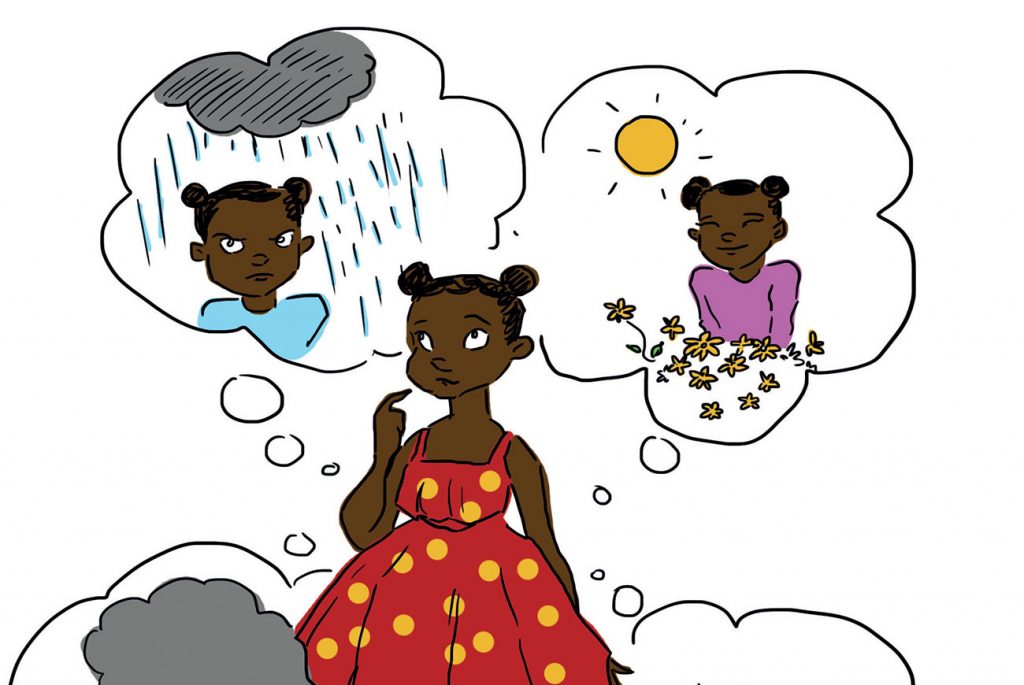Helping children cope with jealousy
Helping children cope with jealous feelings. Storyberries offers free children's books and parenting suggestions to develop valuable skills in dealing with strong emotions like jealousy.

Helping children cope with jealous feelings. Storyberries offers free children's books and parenting suggestions to develop valuable skills in dealing with strong emotions like jealousy.

Jealousy is a feeling of frustration, or sadness, when we believe that we are no longer being emotionally supported by loved ones – at least, not with the intensity and frequency that we want or need.
Many things can trigger jealousy. Every child experiences jealousy at some point, with the arrival of a little brother or sister, with changes in the family structure or simply when they go through the phase of being anxiously attached to their parents. Dealing with this emotion is difficult since it is an ambivalent, contradictory feeling. It manifests more strongly the greater the feeling of love one has for the figure of attachment, and the greater the perceived abandonment.
Childhood jealousy is a natural feeling that arises when kids feel displaced. Children tend to see things as good or bad, and find it difficult to integrate two facets (one positive and one negative) of the same object, person or situation. Therefore, childhood jealousy is, in general, quite difficult for them to control. Children feeling jealousy may manifest some of the following behaviors:
Unexpected mood swings.
Clear signs of unhappiness such as frequently crying for no apparent reason, or sadness accompanied by verbal expressions of not feeling loved.
The sudden appearance of new behaviour, or regressive behaviour. These are usually maladaptive strategies to get the attention of the parents (for example unjustified aggressiveness or ceasing to control bowel movements).
Changes in verbal and gestural expression, or a return to more childish language with immature gestures, such as thumb sucking.
Alterations in habitual routines: sleep, feeding… etc.
General disobedience and negativity, such as an oppositional or defiant attitude towards parents and peers.
Repeatedly denying their own mistakes whilst blaming others for their problems and behaviour (commonly blaming the sibling they feel jealous of).
Please read on…Storyberries provides free online children’s books, and parenting tips, to help kids cope with strong feelings like jealousy.

The gift of loving kindness
When we notice jealousy, the best thing we can do is to approach the situation with an attitude of compassion and loving kindness for everyone involved.
Understanding children’s vulnerability can help us feel more patient. When we can put ourselves in our children’s shoes and feel empathy for them, we understand that jealousy is nothing more than a manifestation of something that makes them feel helpless and overly vulnerable.

Look at what may be causing jealousy
We can also try to understand what is causing jealous feelings to arise. Jealousy sometimes coincides with key moments such as the birth of a sibling. In other instances it may seem to come out of nowhere.
When jealousy appears, there is usually some incident that triggers it. Most parents know what makes their children jealous. Listening and quietly observing children’s interactions can offer valuable clues.

Showing kids we value them
One of the best ways to show kids we care is by being fully present for them. Children need to know that they can count on us. Our presence also reassures them that they matter, helping to reinforce their self esteem and feelings of worthiness.

Recognising and expressing feelings
Kids need to be able to express what they feel in a way that is not harmful to themselves or others. When we see jealousy, we can approach our child and reassure them that we understand how they are feeling.
We might also say: “If you’re feeling jealous, please let me know.” For example, they might ask for affection or a cuddle, ask for toys or comforting objects to relieve anxiety (cushions, balls, etc) or do things that help them relax, such as practicing cartwheels or running in suitable places.

Anticipating tricky situations
It helps to be aware of possible situations that trigger jealous behavior. We can be alert to possible moments of jealousy. In these cases, if we know that the situation is going to trigger the child’s jealousy, we can prevent it by talking to the child, preparing them to face what is coming, or seeking compensation, for example by saying, “We will spend time together later, or on another day.” It is important to avoid making material compensation, because what children are missing on is our company and attention, not gifts or toys.


Rusty and Me
A lovely simple story that provides a way to discuss the topic of jealousy with young children. Rusty, the old school bus, feels very unsure of himself when Stan, a shiny new red car, arrives in town and wants to join in. Rusty feels happy and confident once more when he is reassured that he is still loved as much as ever.

The Whole World I Love It
An exquisite book about a parent’s love for a child. Comforting and reassuring for any child feeling insecure, with its beautiful words and pictures.

A Midsummer Night’s Dream
A ten-minute version of Shakespeare’s classic love story for 7-12 year olds. What better way to discuss themes of love, attachment and jealousy?
Article by Luzmery M. Romero Gamboa and Fleur Rodgers

Luzmery works in the area of clinical psychology as a psychotherapist for children, adolescents and families. Since 2016, she has run a Psychological Center in Venezuela called Psicoluz. She offers workshop facilitations to parents, is involved in recreational activities for children, and has been working as a freelancer since 2017 performing online psychotherapy.

Fleur is a meditation teacher in France and uses a compassion and loving-kindness based approach to meditation and slow-minded living. Fleur posts regularly to Instagram @rodgers.fleur . She has two children, is a qualified teacher in adult education and is the founder of Timeouttobreathe.com
